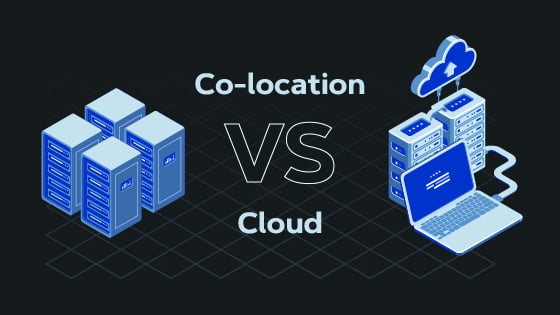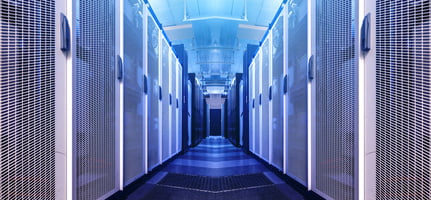Co-location vs Cloud
Nowadays, whenever an organisation is planning a digital transformation, the cloud would be the first option that comes to mind. However, there’s another option that’s worth considering – co-location. Today, we’re going to see how do co-location providers compare with cloud providers. There are several distinct differences between the two and here are three of them.

1. Hardware control
Cloud providers supply the required hardware, while co-location facilities require customers to provide their own hardware. Now, there are advantages and disadvantages to each.
In the case of a cloud provider supplying the hardware, the advantage is that you as a tenant don’t have to go out and purchase that hardware. However, in a co-location environment where you are required to supply your own hardware, the advantage is that you can use anything that you want. If you want to use commodity hardware that comes at a low cost, you can certainly do that. If, on the other hand, you want to use top-of-the-line, high-performance hardware, you can do that as well. It’s entirely up to you what type of hardware you want to use in a co-location environment and you can configure that hardware to meet your needs exactly. You’re not locked into the cloud provider’s approved configuration.
Since you own the hardware, you’re able to configure anything that you want, right down to the lowest level which is what cloud providers don’t allow you to have. In a cloud environment, multiple tenants share the same hardware. Therefore, the cloud provider has to aggressively secure that hardware in order to keep any of the tenants from being able to compromise the underlying operating system or any of the associated infrastructure.
Additionally, because each tenant owns their own hardware, the hardware isn’t being shared across multiple tenants. This helps with security because you don’t have to worry about another tenant doing something that’s going to compromise the security of your hardware. It also helps with performance because you don’t have to worry about the noisy neighbour syndrome, in which another tenant causes an extreme amount of activity and that diminishes the performance of your own workloads.
In all fairness, some cloud providers do give you the option of leasing dedicated hardware within the cloud but even in those types of situations, the cloud provider itself still controls the low-level configuration of that hardware.

2. Software control
Another major difference between cloud providers and co-location providers is that cloud providers offer managed services for workloads. They might offer databases as managed services, for example. They also offer platforms where you can host virtual machines. Co-location providers don’t do this; instead, a co-location provider focuses on leasing data center space, and it’s up to you what you do with it. The advantage to this is that you’re not locked into the services that the cloud provider offers or the cloud provider’s way of doing things. If you want to run some piece of software, there’s nothing stopping you from doing that whereas in a cloud environment, you may or may not be able to run that particular software or that particular workload.

3. Cost control
Apart from software, another major difference between cloud providers and co-location providers is that cloud providers charge you a fee each month based on the resources that you use. This includes things like compute charges, storage charges, and even data egress fees. Co-location providers don’t do this because you’re using your own hardware. So, a co-location provider isn’t going to charge you a fee just to use your own hardware. All you’re really paying for is the space within the co-location facility that you use.
Now, having said that, there are some providers out there that will charge you a fee for electricity and for internet connectivity. That’s a fairly normal thing. However, you’re never going to pay a fee for the CPU resources that you consume on your own servers. So, the reason why this is such an advantage over the cloud way of doing things is because it gives you much more predictable pricing. You don’t have to wonder what your fees are going to be next month because you generally sign a lease at a flat rate, and you know from one month to the next what that lease is going to cost you. In a cloud provider, your monthly usage fees are going to fluctuate based on your workloads. So, it’s hard to predict with any certainty what you’re going to be paying each month to use the resources within the public cloud.
To wrap things up, both public clouds and co-location facilities are off-site multi-tenant environments. Each with its own strength and weaknesses. Having said that, you shouldn’t expect to use a public cloud in every situation. There certainly are situations in which a co-location facility is the better choice. This is particularly true if you’re looking for predictable costs each month, or if you need absolute control over your hardware resources because you’re not going to get that in a public cloud environment.




